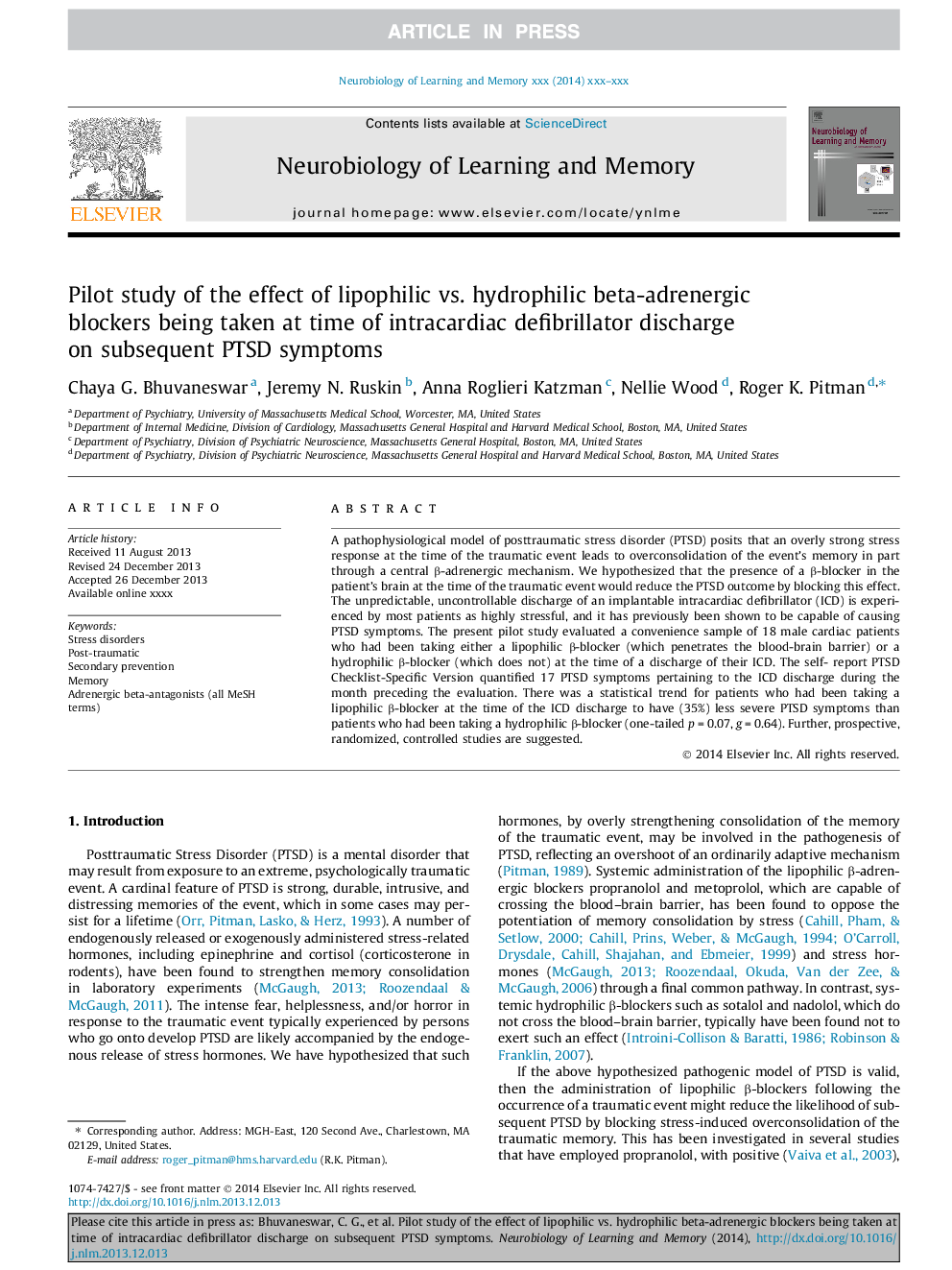| Article ID | Journal | Published Year | Pages | File Type |
|---|---|---|---|---|
| 7300406 | Neurobiology of Learning and Memory | 2014 | 5 Pages |
Abstract
A pathophysiological model of posttraumatic stress disorder (PTSD) posits that an overly strong stress response at the time of the traumatic event leads to overconsolidation of the event's memory in part through a central β-adrenergic mechanism. We hypothesized that the presence of a β-blocker in the patient's brain at the time of the traumatic event would reduce the PTSD outcome by blocking this effect. The unpredictable, uncontrollable discharge of an implantable intracardiac defibrillator (ICD) is experienced by most patients as highly stressful, and it has previously been shown to be capable of causing PTSD symptoms. The present pilot study evaluated a convenience sample of 18 male cardiac patients who had been taking either a lipophilic β-blocker (which penetrates the blood-brain barrier) or a hydrophilic β-blocker (which does not) at the time of a discharge of their ICD. The self- report PTSD Checklist-Specific Version quantified 17 PTSD symptoms pertaining to the ICD discharge during the month preceding the evaluation. There was a statistical trend for patients who had been taking a lipophilic β-blocker at the time of the ICD discharge to have (35%) less severe PTSD symptoms than patients who had been taking a hydrophilic β-blocker (one-tailed p = 0.07, g = 0.64). Further, prospective, randomized, controlled studies are suggested.
Related Topics
Life Sciences
Neuroscience
Behavioral Neuroscience
Authors
Chaya G. Bhuvaneswar, Jeremy N. Ruskin, Anna Roglieri Katzman, Nellie Wood, Roger K. Pitman,
